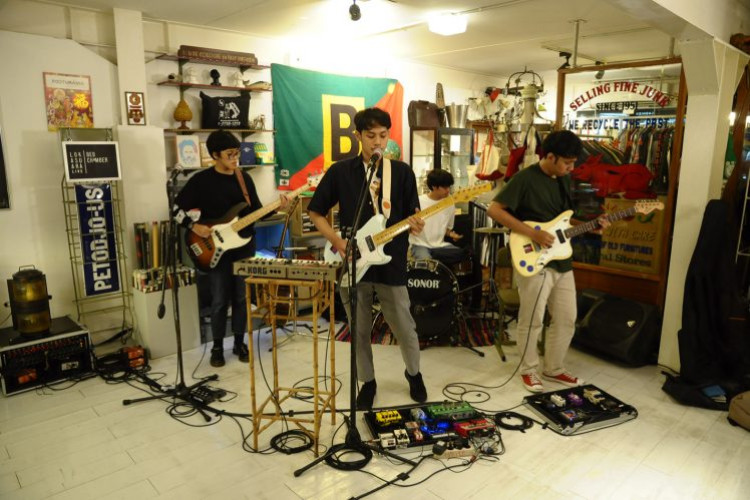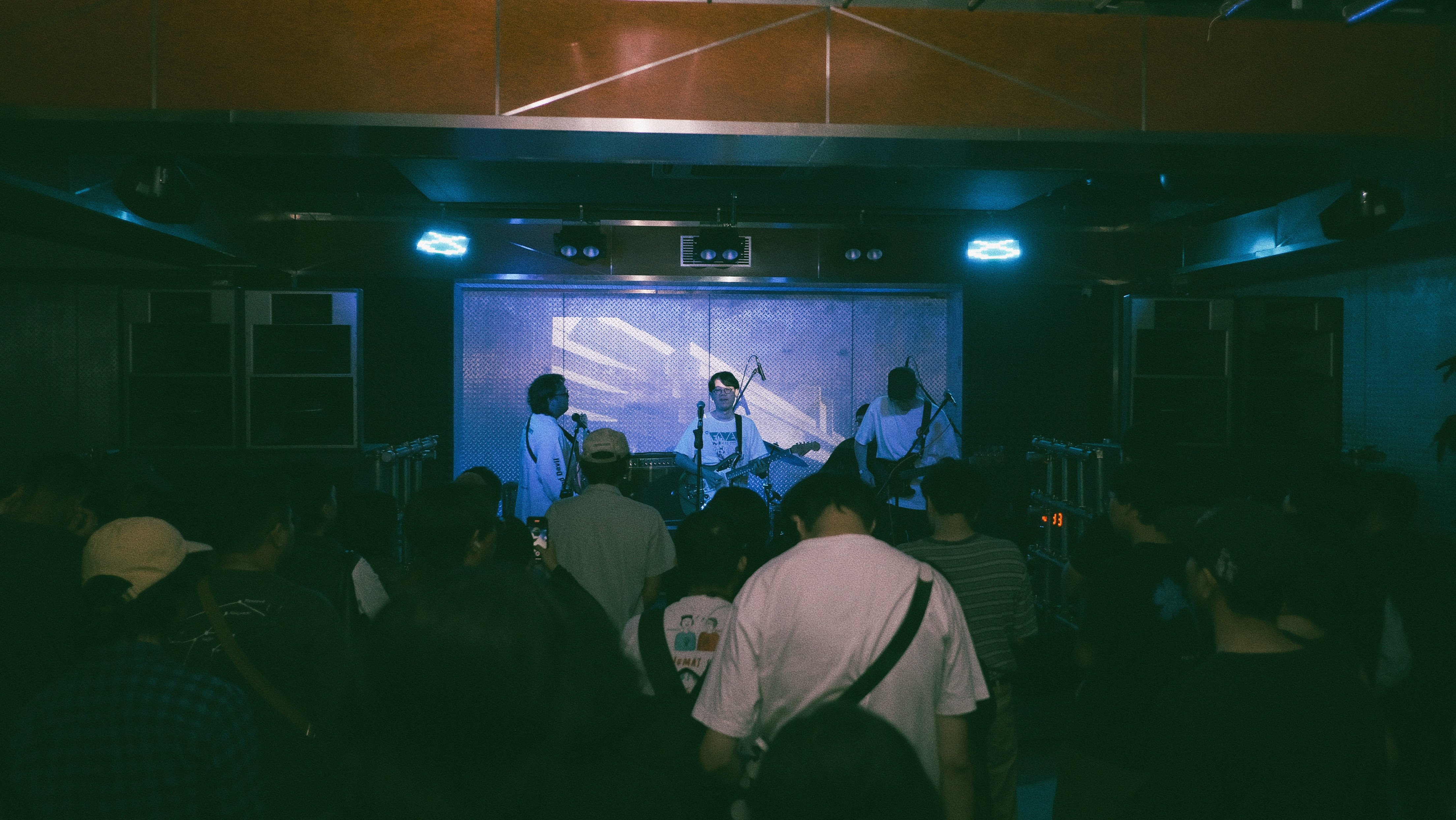
VVAS: “Right now, it’s way more easy ‘cause everyone can make music, and all around the world can see them on YouTube or streaming.”
During Kolibri Rekords’ “ROCK N ROLL KNIGHT KLUB III,” we had a chat with the Thai indie rock band, VVAS, on candid topics ranging from their trigger in creative direction change, to a listen-through on several Indonesian jams.
Words by Whiteboard Journal
When we hear Thailand, we remember sappy TV commercials, to dreamy psychedelia guitar-driven trips. However, there’s another unit that brings forward the guitar side of things in songwriting—meet VVAS, or if you’ve dig deep enough in the Southeast Asian music rabbithole, they’re previously known as Wave and So.
The three, Shin (Gt.), Zo (Vo./Ba.), and Oat (Vo./Gt.) were brought down to KRAPELA thanks to Kolibri Rekords’ gig, sharing stage with Jirapah and their very own Bedchamber, who’ve actually collaborated with the Thai three-piece for a song on their latest album, Eyesore (2024). That night, everyone on the floor was clearly in awe of the surprise, and it felt nice to have shared the feeling with the crowd. But it felt even better knowing that the people behind these angsty sounds are as honest as their crafts.
Text: Garrin Faturrahman
Photos: KRAPELA
Your songs remind me of the brighter 2016 days—even your frequent use of the tropical, two-chord progression is a true look back at those days! I also read that this sonic style is actually a departure from your previous releases. What spurred this creative direction?
Shin: We would like to make our music sound like indie rock from the 2000s, and to just make it simple. So, two-chord progression is the first idea that came to our minds.
We would like to show powerful energy because our previous records have so many melodies. So for this one, we would like to just strum chords.
Does that mean you’re actually trying to go for more cathartic sounds, maybe?
Shin: I think why we’re playing so many chords is to express the aggressiveness of our music.
We do know that many bands are highly affected by the pandemic—from changing their sounds, even to the demise of the band. How has the pandemic affected you as a band?
Shin: Since Wave And So—our previous band name—we actually had released an album at that time, and we couldn’t hold a show back then. But I think that’s the opportunity where we can make more music. We have time to make music, and at that time, we thought that we should change our direction.
The idea came from the lockdown period. It was more stressful, you cannot go outside. So he [points to Zo] wants to express their feelings through music.
Oh, yeah, and at that time, there were many situations in Thai politics. So, so many people died at that time because of their management. So we released the song, “Brutalism,” at that time about the political management that failed.
How does that differ from your latest releases?
Shin: It’s kind of like we grew up from the previous album, where we wrote love songs, about the brighter part of being a teenager. Now, we are middle-aged, so it’s more serious—way more serious.
Can you please name three of your most important bands!
Zo: First, a Canadian band named Women. Second, a Canadian rock band named Corridor, and I think Deerhunter.
Do these bands have any influences on you? Which part would be most obvious?
Zo: For the music part, I was inspired by Women and Corridor, and my vocal was inspired from Corridor. The lyrics, I got the inspiration from Deerhunter.
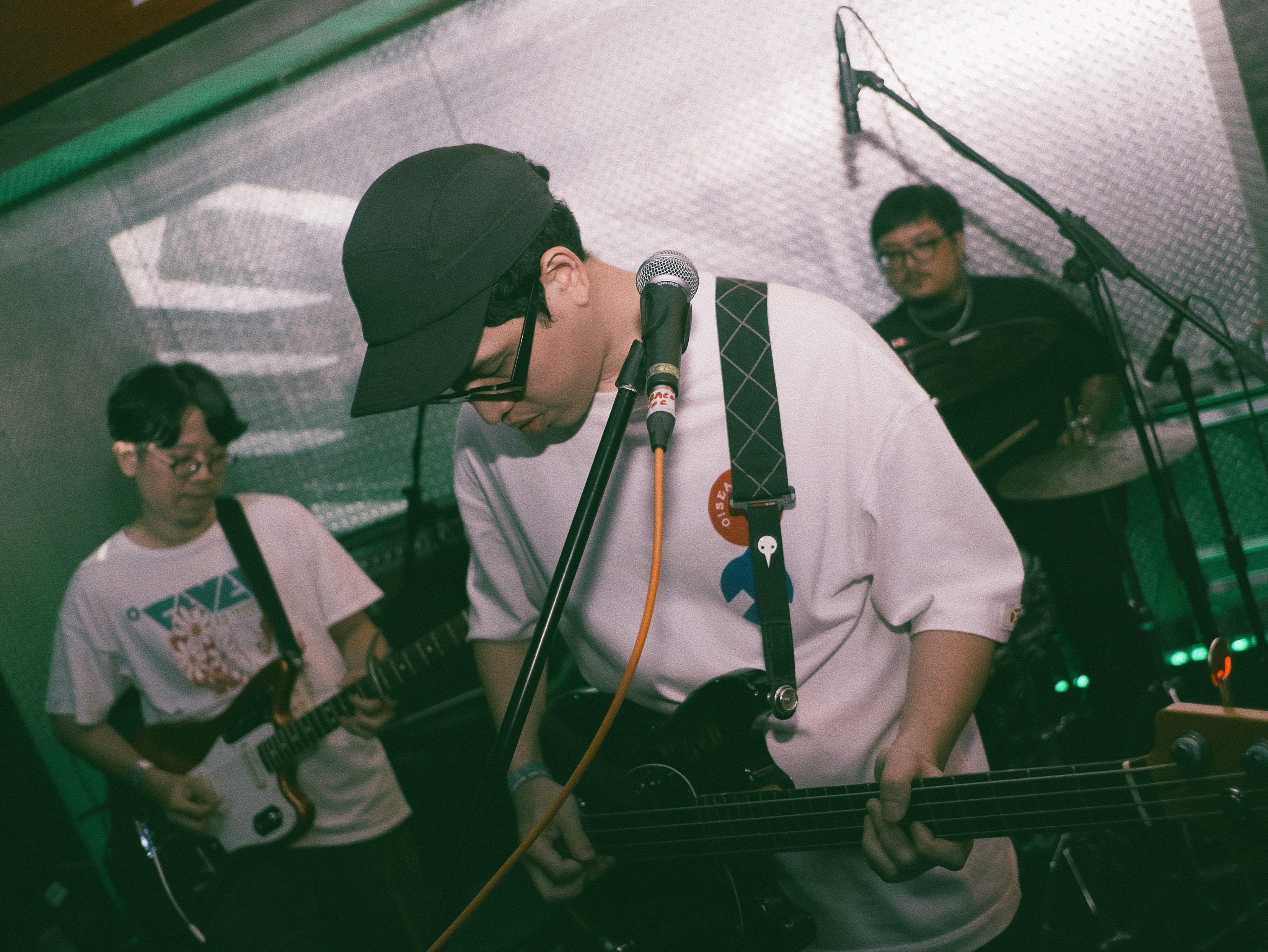
(Credits: KRAPELA)
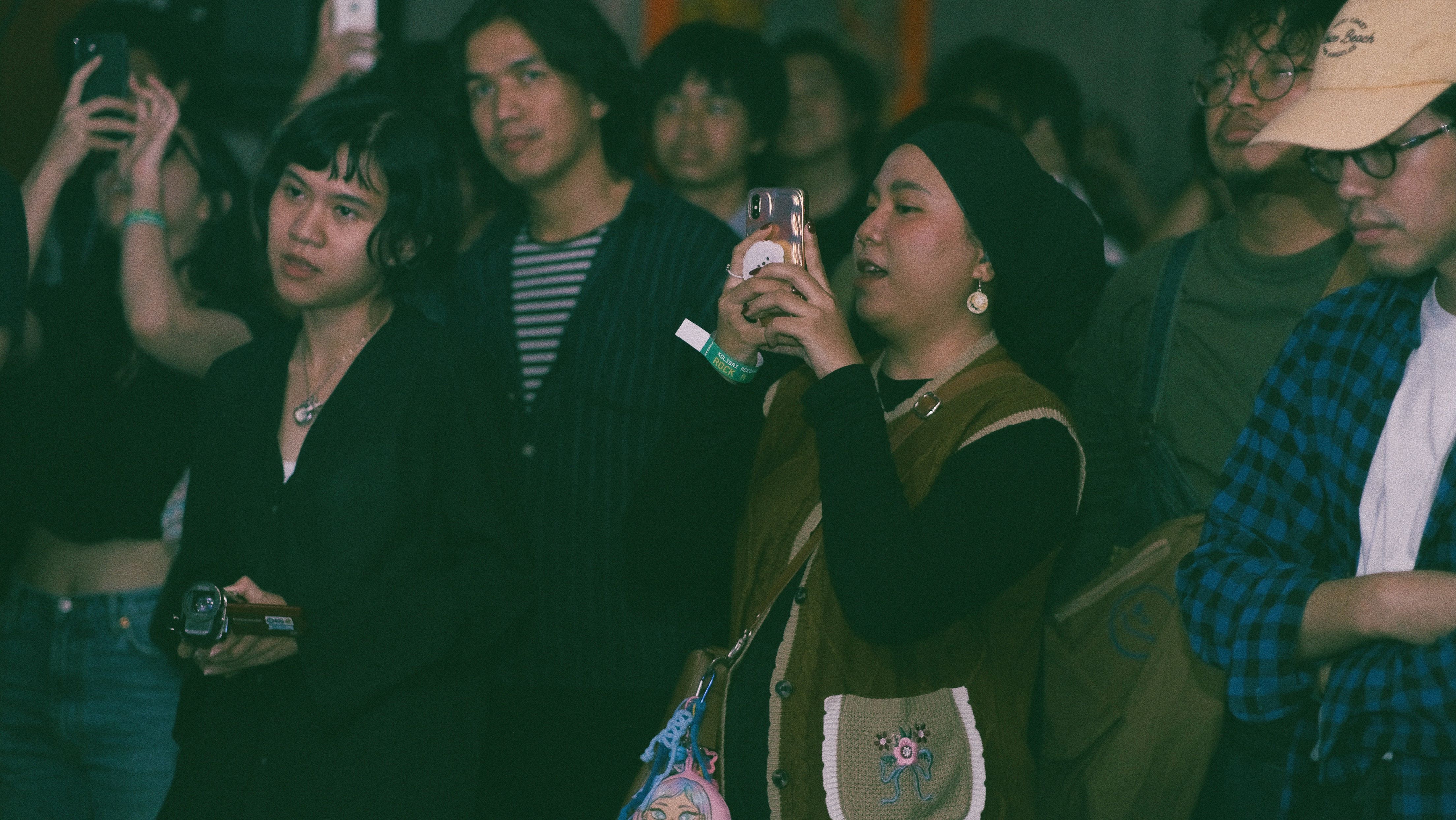
(Credits: KRAPELA)
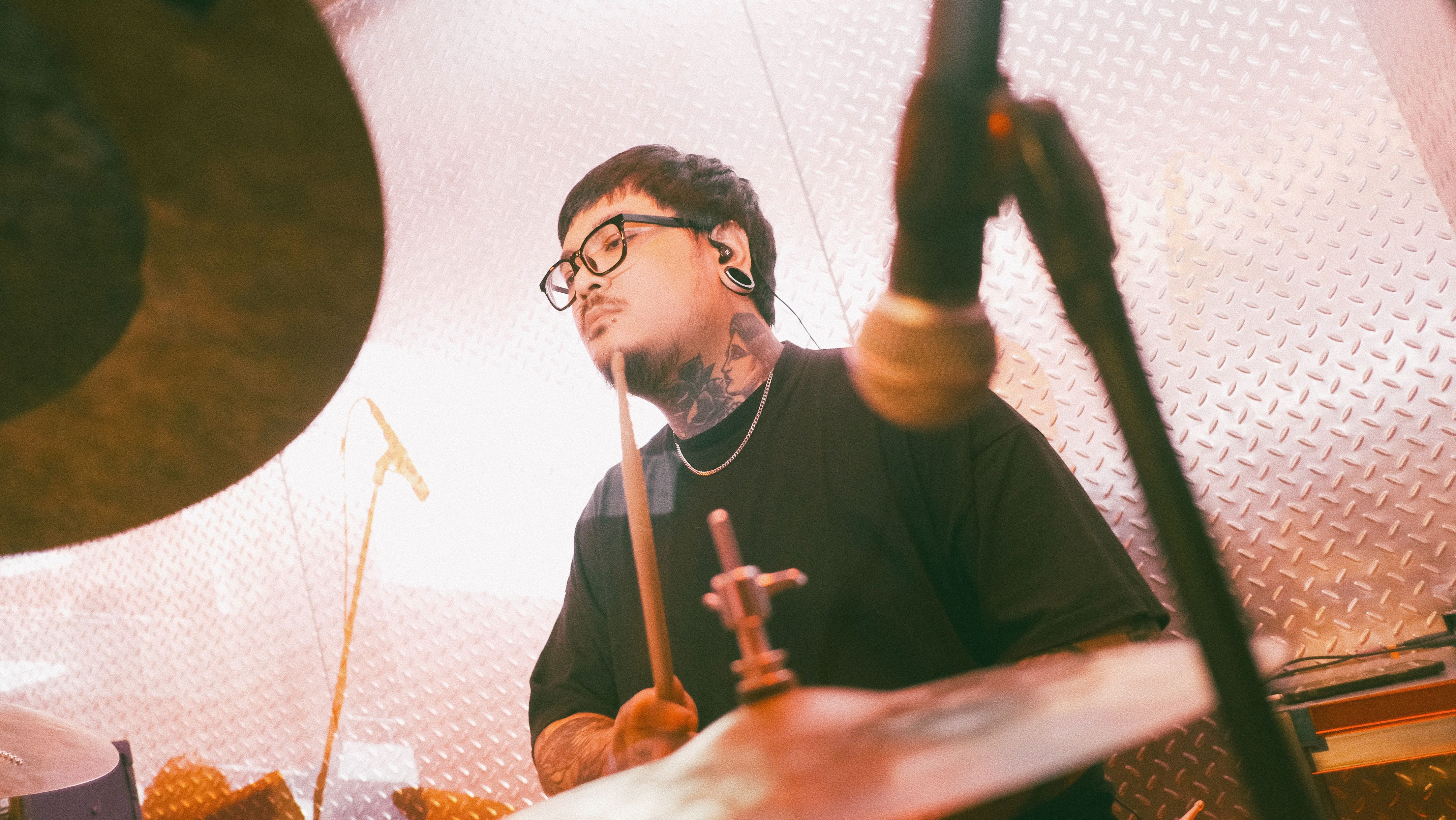
Their session drummer, plays for Folk9. (Credits: KRAPELA)
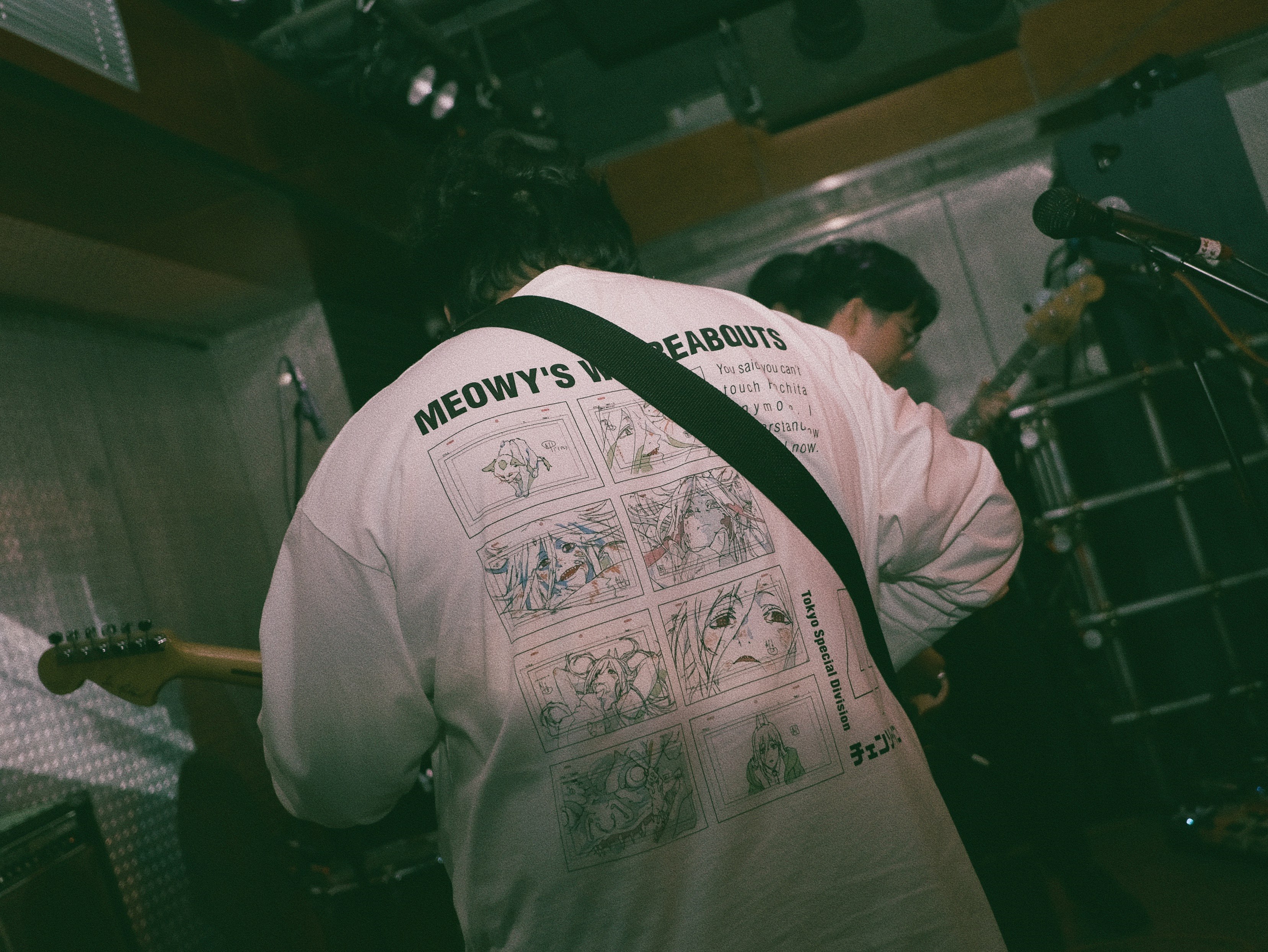
(Credits: KRAPELA)
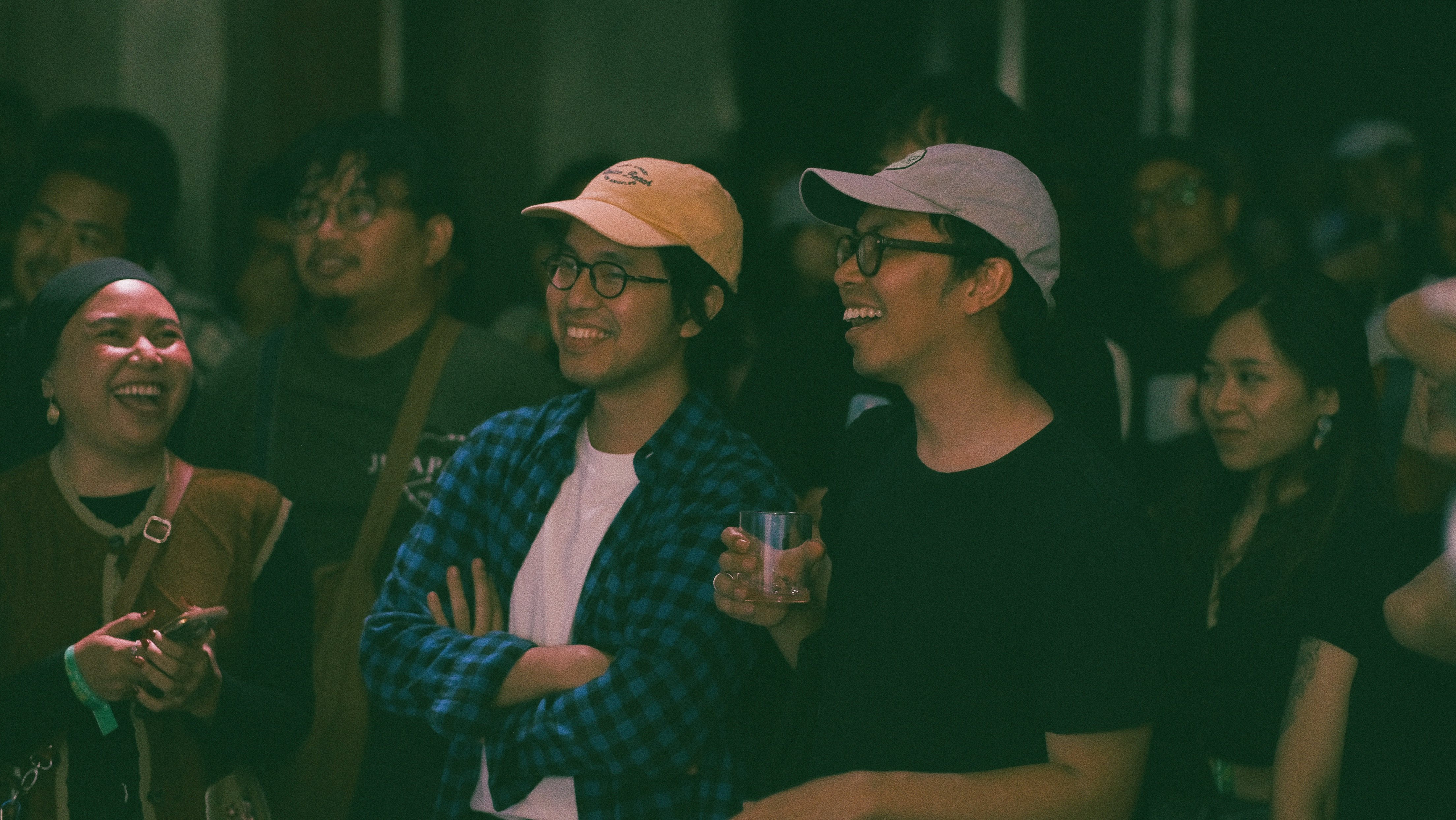
(Credits: KRAPELA)
Southeast Asia is looking up to be the “it” spot for alternative band shows, breathing even more life to the local music scene. How would you forecast the musicscape of Southeast Asian indie bands in the coming years?
Shin: I think right now it’s way more easy cause everyone can make music—even the pop bands, mainstream bands, or indie band—and I think all around the world can see them on YouTube or streaming, and that’s a great opportunity to see rising stars and take them to tour all around Southeast Asia, Asia, or international.
We have seen Subsonic Eye go to KEXP and US tours. That’s our inspiration as well. They’re cool.
Any notable names coming from Southeast Asia?
Shin: Subsonic Eye and Bedchamber, and, for me personally, I like Leipzig from here. Sobs…
Zo: And actually, Glyph Talk.
Shin: And a Thai band as well, Folk9. They just released a new album that sounds more psychedelic.
Let’s look at Southeast Asian bands: We can see that Singaporean bands, since their inception, already have plans to go outwards, whereas Indonesian bands have their sights on the local market. I’d like to know the state of Thai bands: are you guys looking to go international, or still for local audiences?
Shin: International, for sure. That’s why we make our music in English.
Zo: Most people in Thailand like to listen to Thai songs, Thai music, and in Thai language.
Shin: We have a small audience group that loves to listen to more alternative songs. Not that much, but we still have them. But I think, in Indonesia, they have way more diversity in music. For indie bands, they have so many genres—I think way more than Thailand.
Zo: In Indonesia, the recording sound is better than Thai. I think it’s cool.
Shin: The Thai music scene is more strong in dream pop, and they have too many similar genres like soul pop.
Southeast Asia, being a region with a plethora of languages, and with regards to the Thai blooming music scene, would you say that the use of language—in songwriting terms—still serves as a barrier in garnering the international audience?
Shin: Yes, I think it is. But for me, I still love to listen to so many other languages, from Indonesia, I love White Shoes and The Couples Company, even when they’re singing in Indonesian.
What about Thailand? How is the music scene looking as of late?
Shin: I think, recently, I see so many indie bands go to shows abroad, even in Asia or Southeast Asia. I think that’s a good sign.
Right now, the Thai government is trying to support indie bands. They give a budget for your tour, but you have to make a proposal that proves you will have a show at this festival, and they will be like, “oh, this band has potential,” and they will give you money. Something like that.
It’s called music exchange from the Thailand Creative Economy Agency. So this one, I think it’s under the government, and they also try to give grant for music or films.
We’d like to recommend you some local bests!
Seaside – Nothing and Everything
Zo: Yes, I love this band.
Shin: Reminds me of, like, indie rock from the 2000s, around that.
Zo: They sound like Pavement, but with Women vocals.
I think I love the drum part. *mimics the drums*
Makmur Sejahtera – Ensiklopedia Dinosaurus
Zo: Oh! Sounds like an emo band. Like it.
So, what about the song’s meaning?
For me personally, I feel it’s about something that’s very ancient, but it’s something to remember. Something so forgone, but we’re still trying to remember.
Zo: Oh, okay. Emo song.
Shin: I like the guitar sounds, like how they play the chords.
Texpack – Ode to an Old Man
Zo: I love this song. Sounds so cool. This reminds me of a band called Duster.
That’s a good one. In Thailand, we don’t have a band like this.
Hevva – Rabu Biru
Shin: A bit psychedelic, yeah?
Zo: I think the drum recording is so good.
Shin: I love the distortion sound from the drums.
Zo: I love the cover. Plus, we’re all graphic designers, so that’s a good one.
Shin: I think the graphic work in Indonesia is so unique. Yeah from the color to the proportions.
Zo: I think Indonesian designers are good at choosing typography.
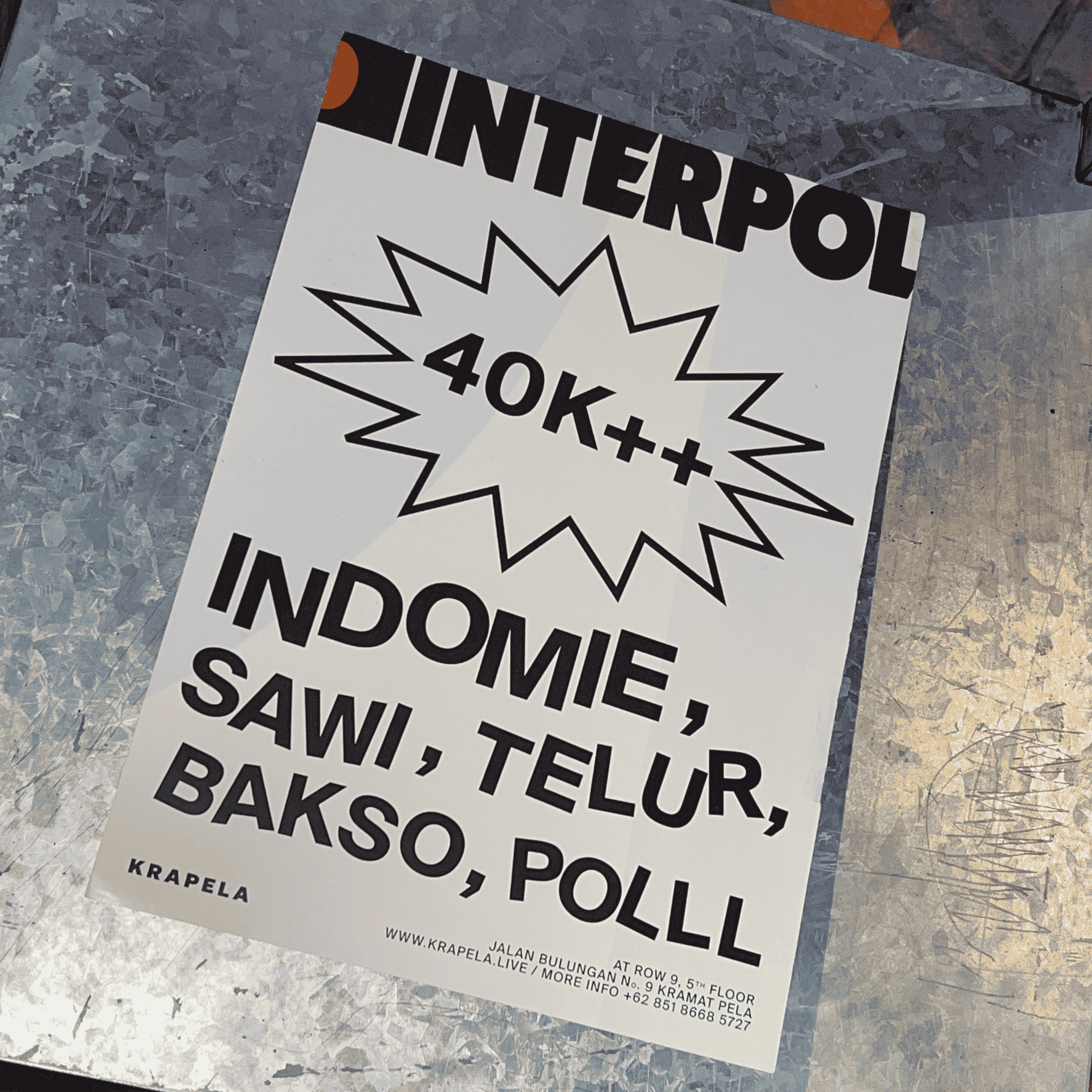
A poster in KRAPELA. (Credits: Garrin Faturrahman/Whiteboard Journal)
Simple and unique. Yes, I think even that! *points to the Plaza Blok M sign*
Shin: I love the way they use the color.
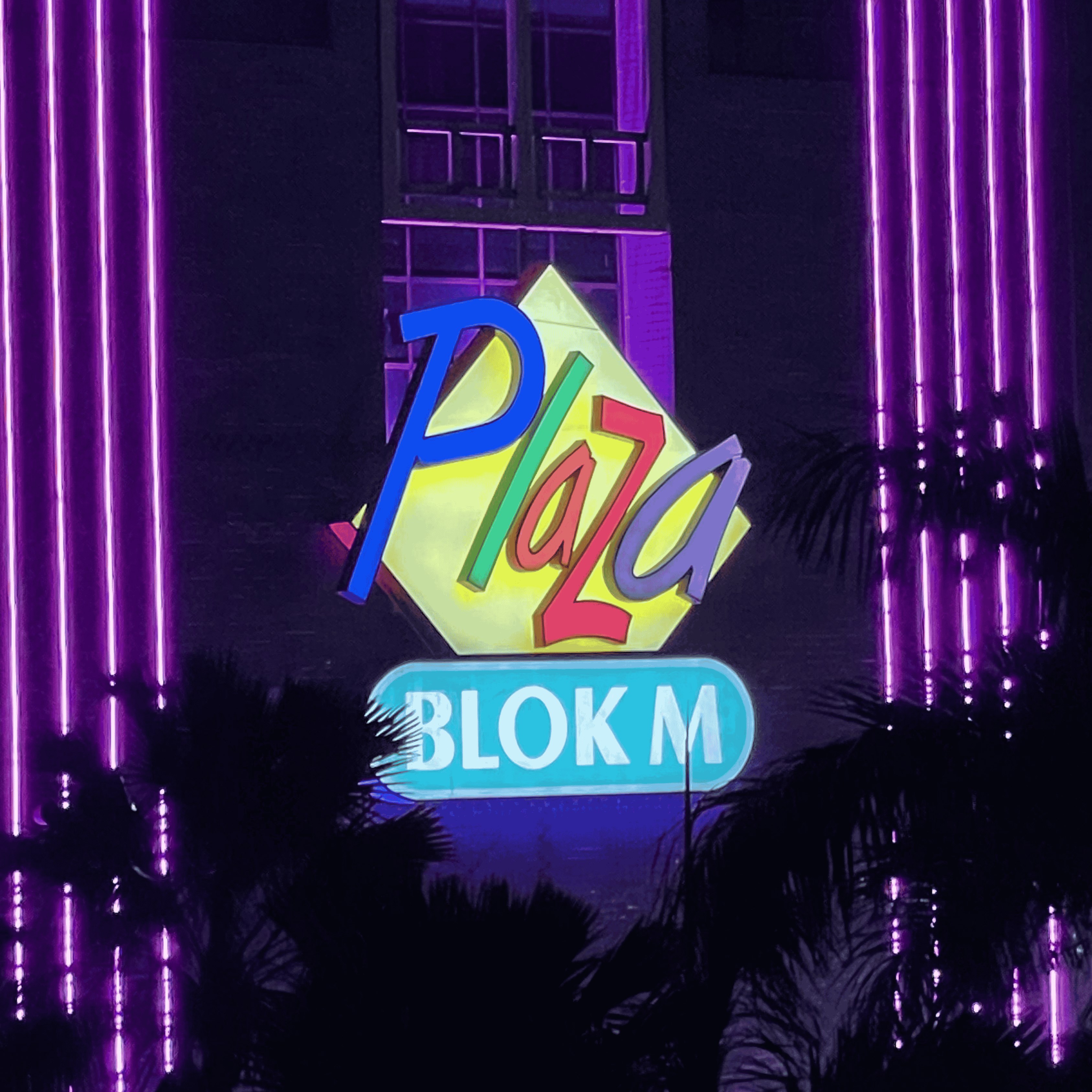
Blok M Plaza. (Credits: Riezky Hana Putra/Whiteboard Journal)
It’s been there since forever, I feel!
Shin: Oh!! So it’s a classic!!











